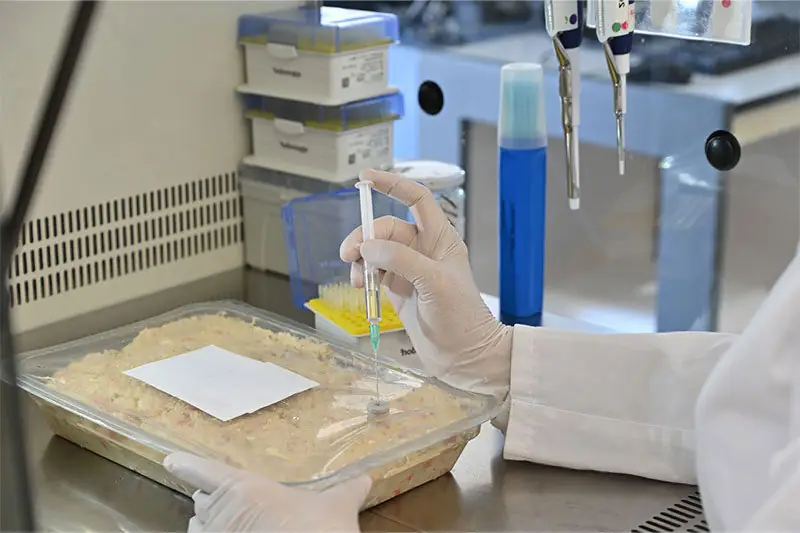Microbial Contamination Monitoring in Cosmetic Packaging
The safety and quality of cosmetic products are paramount to consumer health. Microbial contamination can pose serious risks, including allergic reactions and infections. This service focuses on detecting microbial contaminants within the packaging materials used for cosmetics. Our comprehensive testing ensures that the final product is safe and meets international standards.
Microbial monitoring in cosmetic packaging involves several steps, each critical to ensuring the integrity of the product. The first step is selecting appropriate sampling methods. For instance, swabbing or liquid surface sampling can be employed based on the type of container being tested. Once collected, samples must undergo rigorous preparation, which may include dilution and plating techniques to enhance the detection of microorganisms.
Our laboratory utilizes advanced microbiological culture media and incubation conditions tailored for specific types of microorganisms. Commonly used media like thioglycollate broth or tryptic soy agar (TSA) support a wide range of bacteria, while Sabouraud dextrose agar is preferred for fungi. Incubation periods vary depending on the expected growth; typically, we incubate samples at 30°C to 35°C for up to seven days.
Identification and quantification are critical next steps in our process. We employ various methods such as biochemical tests, molecular diagnostics (PCR), and mass spectrometry to accurately identify the microorganisms present. Quantitative techniques like colony-forming unit (CFU) counts provide precise measurements of microbial populations. This information is vital for understanding contamination levels and compliance with regulatory standards.
Our laboratory adheres strictly to international standards such as ISO 14695:2013, which outlines best practices for the microbiological quality of packaging materials in pharmaceuticals and cosmetics. Compliance with these standards ensures that our clients can market their products confidently worldwide.
The importance of microbial contamination monitoring cannot be overstated. Inadequate testing can lead to contaminated products reaching consumers, resulting in health issues and potential legal ramifications. By partnering with us, your organization gains access to expert microbiologists dedicated to maintaining the highest standards of safety and quality.
- International Acceptance: Our tests are recognized by leading regulatory bodies around the globe.
- Compliance Assurance: We ensure that all results meet or exceed industry benchmarks.
International Acceptance and Recognition
The International Organization for Standardization (ISO) has established ISO 14695:2013, which specifies requirements for microbiological quality of packaging materials intended for use in pharmaceuticals. Our laboratory fully complies with this standard, ensuring that our tests are accepted internationally.
- ISO 14695:2013
- ASTM D7084-17
- European Union (EU) regulations
Our adherence to these standards guarantees that the results from our microbial contamination monitoring are recognized by regulatory bodies worldwide. This facilitates easier export and import processes, reducing potential delays or barriers.
Environmental and Sustainability Contributions
In addition to ensuring safety, our commitment to environmental sustainability is evident in our testing practices. We use eco-friendly materials where possible and minimize waste by optimizing sample preparation methods.
- Eco-friendly media for culture
- Optimized waste reduction techniques
We also advocate for sustainable practices within the industry, sharing knowledge and best practices with clients to promote a greener future. By choosing us as your partner in microbial contamination monitoring, you contribute positively to environmental sustainability.
Competitive Advantage and Market Impact
By leveraging our expertise in microbial contamination monitoring, companies can gain significant competitive advantages. Early detection of contaminants allows for timely corrective actions, minimizing risks associated with product recalls or health issues.
The ability to demonstrate compliance with international standards enhances brand reputation, building consumer trust and loyalty. This is particularly important as regulations become more stringent globally. Companies that invest in such services are better positioned to meet these challenges head-on, ensuring long-term success in the cosmetics market.





